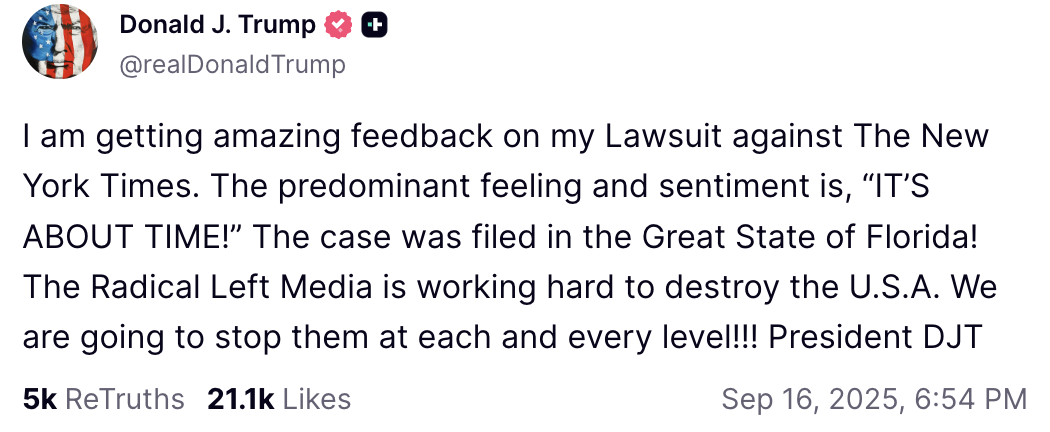September 19, 2025
Judge Dismisses Trump's Defamation Suit Against NYT for Failing to Meet Legal Standards

In a striking rebuke from the bench, former President Donald Trump's defamation lawsuit against the New York Times was dismissed this morning by Judge Steven Merryday. The lawsuit, which claimed damages for statements made by the Times, was criticized for not meeting the basic legal requirements stipulated by Rule 8 of the Federal Rules of Civil Procedure.
Judge Merryday, who has served since 1992, noted that the 85-page complaint was excessively laudatory towards Trump, detailing his real estate accomplishments and personal brand, yet it lacked a "short and plain statement of the claim" as required by law. The judge's dismissal was a clear message that legal filings are not platforms for extravagant praise or personal grievances.
The legal team representing Trump included Alejandro Brito, Edward Paltzik, and Daniel Epstein, who have been involved in various high-profile cases supporting the former president. Despite their previous engagements, Judge Merryday's decision suggests that even high-powered attorneys must adhere strictly to procedural norms.
The court has granted Trump's legal team 28 days to amend and refile the complaint, with a strict limitation of no more than forty pages. This directive compels Trump's attorneys to focus on the core legal arguments without the extensive adulation that characterized their initial filing.
This case is one of several legal battles Trump has initiated since leaving office, reflecting his ongoing struggle with major media outlets over their portrayal of his actions and statements. As the legal proceedings continue, the judiciary's tolerance for procedural missteps appears to be waning, signaling a tougher stance on adherence to legal standards.